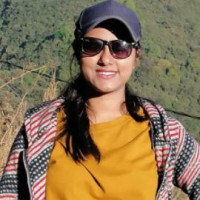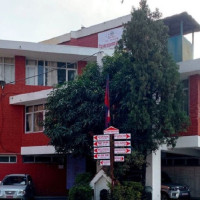- Tuesday, 3 March 2026
Pudasaini’s Tips For Nation’s Prosperity
Education is considered a powerful tool that helps not only spread the light of knowledge but also build a well-off society. Moreover, with quality education that meets global standards, a country can leap forward in economic development and social equality within a short span of time. Along with education, sound health, good income, and robust social security are vital for an individual to live a life of dignity and affluence.
These ideas form a key leitmotif in the book titled Samriddhi Ko Huthuti: Sushasan Ra Samriddhi 101 Paila (Yearning for Prosperity: 101 Steps for Good Governance and Prosperity). In the book, the author Ashbinkumar Pudasaini offers 101 proposals to bring about social, economic, and cultural transformations.
As a saying goes, ‘Rome wasn’t built in a day,’ it naturally takes time and hard work to reap the fruits of development. With a positive attitude, strong determination, and continuous hard work, Nepal can, step by step, move on the path to success. The author expresses the view that creating an economy where every Nepali can afford to travel abroad for at least ten days a year is both a challenge and an opportunity for today’s generation. If the nation-building occurs through consistent efforts by keeping talks and useless discussions at bay, a foreign trip for every Nepali cannot be a big deal.
Nepal, like 193 other countries, has promised to achieve 17 Sustainable Development Goals (SDGs), including the eradication of extreme poverty by 2030. The book also highlights that the National Planning Commission commenced to work on attaining these goals from January 1, 2016, with plans laid out on paper. However, progress on eradicating poverty is far from satisfactory.
The author also airs disappointment, pointing out that villages across the country have been deserted. Most villages are left with only the elderly people, children, the ill, and women, as the younger generation, after completing their school-level education, have flown to other countries for higher study and a better future. The book begins by suggesting that every Nepali should have a bank account, as it is essential for good governance, justice, and social inclusion.
Although banks have reached all municipalities, 32 per cent of Nepalis still remain outside the reach of banking services. His last suggestion is that the government should ensure free funeral services for all Nepalis. The book has proposed ideas such as every newborn in the country automatically receiving a birth certificate, a bank account, health insurance, and a national identity card. It emphasises the need for a system where all payments are made online, ensuring smooth and hassle-free transactions for the public.
Additionally, the author envisions a future where internet access is expanded to every corner of the country, from villages to cities, alongside a robust digital national payment gateway system and an advanced Nagarik app to create smart citizens.
He calls for addressing issues pertaining to information security, using paper money of only the denomination of Rs. 100, making all transactions with coins below Rs. 100, granting share broker licenses to all commercial banks, and raising awareness of the importance of paying taxes.
One interesting idea is the development of 101 new cities to promote internal tourism. The state has been urged to devise 5,000 standardised housing models, enabling municipalities and rural municipalities to select and implement housing plans. The author emphasises that every Nepali should own a home. Citizens need quality education, accessible healthcare, school facilities, clean drinking water, job opportunities, and internships for students. Similarly, high-quality fruit farming, advanced nurseries, and vegetable farming enable farmers to earn a fast buck. For this, proper irrigation facilities and water reservoirs should be available at the local level.
In suggestion No. 35, the author states that the government publish local news through Gorkhapatra daily. They should include government information, development updates, success stories, and positive events. Another important highlight is that all legal cases should be resolved.
within a year. There has been an inordinate delay in settling the legal cases. People have to wait for years or decades to get their litigation sorted out in the court. This irks the author, who suggests resolving them based on their nature within a stipulated timeframe.
The book recommends that all Nepali workers aspiring to go abroad for employment should be sent through the G2G (government-to-government) system, ensuring safety and preventing exploitation and fraud by brokers. Protecting childhood, empowering women, promoting good habits, preserving cultural assets, and raising awareness about balanced nutrition are equally significant. It is essential to integrate mental health with physical health, foster a culture of cooperation, and show respect for senior citizens for a civilised country.
Pudasaini, a senior employee at Nepal Bank Limited, had suffered a cardiac arrest and narrowly escaped the jaws of death. He came up with these 101 fascinating ideas after recovering from the life-threatening illness. Based on his own personal experiences and research, he shares these notions that are highly useful for policymakers and politicians as well. Although the 101 steps for good governance and prosperity sound ordinary, there is an onerous challenge to implement them in the country where corruption and political chicanery are pervasive. If the government implements even a few of them, the country will witness tangible socio-economic improvement in no time.
The 101 steps reflect the author’s vision for a healthy and wealthy nation. Indisputably, his patriotic zeal is appreciative. However, these are also the dreams of all Nepalis, who have been yearning for a happy, prosperous, and dignified life for centuries.
(Dhakal is a journalist at The Rising Nepal.)









-original-thumb.jpg)







